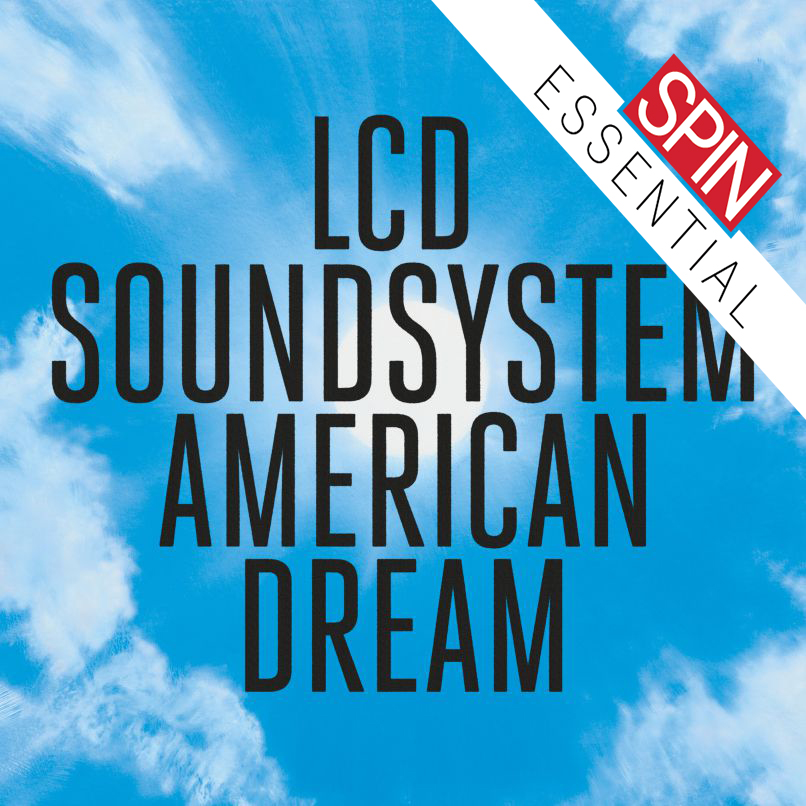You were there, even if you weren’t. When LCD Soundsystem called it quits in 2011 with a pair of sold-out Madison Square Garden concerts, it was an ideal sendoff for the indie culture they’d mocked but also proudly represented. Emotional haircuts from across the country came to pay their respects. Arcade Fire showed up to sing background vocals; Aziz Ansari was seen crowd-surfing; high-low cultural sage Chuck Klosterman eventually narrated an award-winning documentary chronicling the whole occasion. Not since the ending of the Band had a North American music act said farewell on such a picture-perfect, well-curated note.
Then, in 2016, after about a normal time in between albums, James Murphy announced LCD Soundsystem weren’t done yet. This despite the outgoing fanfare, which led to charges they were only in it for the money. “This isn’t a victory lap or anything, which wouldn’t be of much interest to us,” he clarified. “This is just the bus full of substitute teachers back from their coffee break with new music and the same weird gear … and rambling around trying to be louder than everyone else.” Over the next year, they toured to crowds both rapturous and unexpectedly small, dropped new songs at a snail’s crawl, and kept promising their fourth record was on its way. A cynic might’ve accused them of stalling for time. The ‘00s were long gone—what did one of its premier bands have to say about modern life?
Thankfully, and thrillingly, they’ve moved on. American Dream is an older and greyer record, far removed from the waggish bon vivants who provided the life of the party. They’re working in a darker mood, playing with denser electronics and headier explorations of themes like mortality, friendship, and aging that have always played into their music. The promise of the scene has curdled; their friends are five and ten years off into their own lives; New York, once a muse, is just over-priced. They wanted a hit; what they got was another vape shop.
LCD Soundsystem were one of the few bands of their milieu who might have been legitimately called a “hipster band.” Consider the hipster as he probably was, rather than the stereotype invented by the saltiest people alive: a sarcastic person of vaguely justifiable fashion wielding their taste like a cudgel, while also secretly pining for the release that comes with just being honest. LCD’s songs often ping-ponged between these spaces of wry knowingness and pelagic grief, staking their claim to being more interesting than your average Midwesterner while reminding you that aesthetic and intellectual superiority don’t necessarily make you happier.
Cities are filled with people like these, and it’s no surprise that LCD found their biggest fan bases in New York, Los Angeles, and in places where people secretly want to live in New York or Los Angeles. But where American Dream draws its energy is not from this urban restlessness, but from the end-of-the-night denouement, when the glitz and glamour have ebbed and left a drunken guy eating a burrito on his couch. “You’re having a bad dream,” Murphy wails on opener “oh baby,” as synthesizers throb and gleam over a methodical beat that references Suicide’s “Dream Baby Dream.” “You were having a bad time there in your home.” Once the band might’ve built up the tempo, or paced toward some kind of sonic climax, but here the song simply swells with sadness over six minutes.
Much of American Dream is located in this meditative space. On “i used to,” the band smears starry synths over a brooding bass line as Murphy sings to a friend who taught him about the darker side of life (“I’m still trying to wake up / When’s your time to wake up?”), before a guitar enters to twist in the wind. On “change yr mind,” a hypnotic drum line is counterbalanced by a squiggly riff credited to the band’s Al Doyle as “snake guitar.” That one finds its origins in Brian Eno’s Another Green World, as the ambient master once told Lester Bangs he’d started to describe his instruments by the sounds they produced. (“In that case it was because the kind of lines I was playing reminded me of the way a snake moves through the brush, a sort of speedy, forceful, liquid quality.”)
The record’s centerpiece is the astonishing “how do you sleep?,” which functions as a sonic B-side to “Dance Yrself Clean” and features Murphy’s most incantatory singing. The song inhabits a purgatory found at the end of a very meaningless club night, with Murphy addressing a former friend who got him addicted to the bacchanalia. The title references John Lennon’s legendary diss track against Paul McCartney, and here is likely directed at estranged DFA co-founder Tim Goldsworthy, who aired him out relentlessly in recent NYC rock history Meet Me in the Bathroom. “I must admit I miss the laughing,” he sings, “but not so much you,” a poisonous kiss-off that could only be directed at someone you’d loved very much before they hurt you. As he stares into some dark void, heavy synthesizers beam in from very far away, crashing with the percussion like waves against the shore he sings about standing on.
Murphy has always come off like the smartest, most uncompromising guy in the room, eager to play the villain if he senses that’s what’s needed to get his way. Recently, he made a flippant comment about only breaking up LCD to boost sales of their Madison Square Garden shows, which would be an evil stroke of genius if true. His rise from grubby club kid to wizened scene leader was accompanied by stories painting him as some Bourdain-esque sensory glutton, like the time he developed gout while food-testing for his new wine bar. His intelligence made him a savagely precise lyricist, capable of reading his audience to his core, though his droll affectation could occasionally cross the line into shtick. (Seven years later, the jury is still out on “Drunk Girls.”)
Thankfully, the writing on American Dream is more severe, not schmaltzy. He saves some of his sharpest observations about aging and hipness for “tonite,” a rubbery dance track that improves immensely from the album’s sequencing, providing the first true moment of danceable catharsis after following so many dirge-like songs. “You’re too sharp to be used,” he sings over crisp percussion, “Or you’re too shocked from being used / by these bullying children of the fabulous / raffling off limited edition shoes / and ‘what’s it you do again?’” “Emotional Haircut” might’ve fallen victim to its cutesy title, as Murphy sings about going through a midlife crisis, but halfway through the call-and-response clatter Murphy turns beautifully reminiscent: “You got numbers on your phone of the dead that you can’t delete / and you got life-affirming moments in your past that you can’t repeat.”
If LCD’s music once scored a guiltless party of cool people, the kids in silver outfits and covered in glitter dust, that’s no longer the case. Recently, Murphy gave an acerbic interview to New York where he castigated a Newsweek article that had critiqued the certainly interesting cover art. “I expect the audience to be bummed,” he said. “I don’t expect somebody who can accurately assess what’s going on with a piece of art to also not say that maybe the thing bumming them out is also what makes the art interesting.”
Also in the interview, he spoke about his dissatisfaction with the idea of “cool,” which LCD Soundsystem inarguably inhabited at the peak of their career. “I used to hate cool stuff because I was jealous of it,” he said. “Then I thought I would try cool stuff to see if it was fun. Then I was cool. Now I’m just old. That’s the arc. Also, for me to try and be cool now … good god. I’m not going to dye my hair.”
Well, Murphy was never less than a man with taste refined enough to tell what sucked, and even if they’re no longer trying to be cool, they’re not embarrassing. I admit I was underwhelmed by the first stirrings of the reunion. I thought the new songs lacked a certain energy; I saw them perform live, and worried they were already going through the motions. American Dream is good enough to dispel all of those concerns. The passing of their imperial phase has left them like any formerly Teflon hipster: honest, and ready to move on from whatever they found at the heart of the party. Admitting for real that they’d lost their edge is one of the most interesting things they could’ve done, and hopefully they keep making more records after this one. At the very least, they’re smart enough not to throw another Madison Square Garden party.
https://open.spotify.com/embed/album/4AF1M7bGCFL3LHCtXUUXw5





